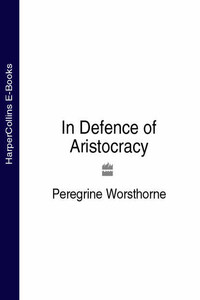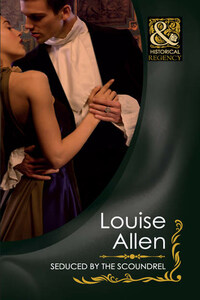Dedication
I love it [aristocracy], like history.
Sylvia Plath
The hereditary permanency of families, and sets of families . . . are an invisible social asset on which every kind of culture is more or less dependent.
Labordere, quoted in Robert Skidelsky,
John Maynard Keynes
Acknowledgements
I want to acknowledge the great debt I owe to Larry Siedentop’s fine essay on De Tocqueville (Oxford University Press, 1994) and his learned and lively Democracy in Europe, every page of which only served to confirm me in my belief that without an aristocratic dimension that noble ideal can never be realised. Siedentop himself, it needs to be said, reaches no such conclusion. Aristocracy is dismissed as a thing of the past. But it is often an embarrassing mark of a great work, such as his, to have unintended consequences.
I also want to thank Professor Vernon Bogdanor, of Brasenose College, Oxford, Edward Skidelsky and Derwent May for their very great kindness in reading my book and making invaluable suggestions. In no way, however, should their kindness allow them to be saddled with any responsibility for my conclusions.
And most important of all I want to pay tribute to my secretary, Claire Allan, whose patience, mastery of the computer, wise advice and encouragement have smoothed my path at every turn. The librarians at the London Library, too, have been unfailingly helpful, well beyond the call of duty.
Thanks are also due to Caroline Michel and Michael Fishwick, of Harper Collins, for not being put off by an unfashionable theme, and to Catherine Heaney and Kate Hyde for so cheerfully and efficiently getting the book into print.
And apologies to my wife for any embarrassment caused.
Prologue
Not only does every country have the aristocracy it deserves, but so does every era, including the democratic era. In this essay the term is used in two senses: first, to describe families whose power and authority, high prestige and assured dignity, depended upon titles of nobility dating back, in some cases, to feudal times; and, second, to describe families whose power and authority depend not so much on the distinction of ancient lineage as on what the distinguished American historian John Lukacs* calls ‘distinctions derived from the consanguinity of their families with high civic reputation’; in other words, on a record of public service rather than on blood. Of the first it could be said that they were powerful and authoritative because they were noble; of the second that they were noble because they were powerful and influential.
Mr Lukacs suggests that a better term to describe this second meaning – families who are noble because they are powerful and influential, rather than the other way around – would be ‘patrician’ rather than aristocratic. They have something in common he writes, ‘with the old patrician societies of modern Europe, nearer to the middle of the continent, with a social and civic order incarnated by the great merchant families in cities such as Basel, Geneva, Amsterdam, Hamburg, or with the grand bourgeois (often Protestant) families in France . . . little in common with Proust’s world of the Guermantes; many things in common with the world of Buddenbrooks (which Thomas Mann described in 1901) . . . solidly bourgeois (in the best sense of that often used word) and not glitteringly feudal.’ Mr Lukacs’s point is well taken. In the nineteenth and twentieth centuries, the description ‘patrician’ catches the flavour of the English ruling class rather better than the word ‘aristocratic’, covering, as it does, both Peel and Salisbury, Disraeli and Gladstone, Harold Macmillan and Hugh Gaitskell, even, just, both Tony Blair and Michael Howard. Nevertheless, out of habit, I have decided to stick to aristocratic and aristocracy and to leave it to the reader to make the necessary adjustment according to the context.
In any case, central to both meanings is the idea of certain families, joined together by the invisible bonds of memory, as bearers of important moral and social values and political traditions that carry authority because they have been demonstrated, to the satisfaction of all classes, to have served the public interest over many generations.
An aristocracy must also have another intangible source of power and authority – transcending all the others – that comes from longevity; from having been around long enough to have become an integral part of the nation’s history and mythology. So without that time-honoured place in a nation’s history and mythology an aristocracy ceases to be an aristocracy, and reverts back to being an ordinary power elite, whether in the form of plutocracy, oligarchy, a military junta, or meritocracy. In other words, the authority of an aristocracy, like that of a theocracy, depends on the power of faith: the public’s faith in it and the aristocracy’s faith in itself. It profits an aristocracy little, therefore, to retain only its wealth and power because without that intangible element of faith – beyond the range of political scientists to identify or quantify – it is no more than sounding brass and tinkling cymbals.








